Pros and Cons of Forced Air Heating
Forced air heating is arguably the most popular heating option for many homes. Whether people choose this system for its low cost, convenience, or some other reason, there’s no denying that forced air systems have become almost synonymous with home HVAC systems.
As the name suggests, forced air heating systems use air as the heat transfer medium. These machines typically have a furnace that helps heat the air, ducts, and vents that disperse the air throughout the house. Forced air systems can be of different types, such as forced air furnaces, heat pumps, etc.
However, despite its popularity, you may still be wondering what forced air heating is and if it’s the best option for you. Let’s find out!
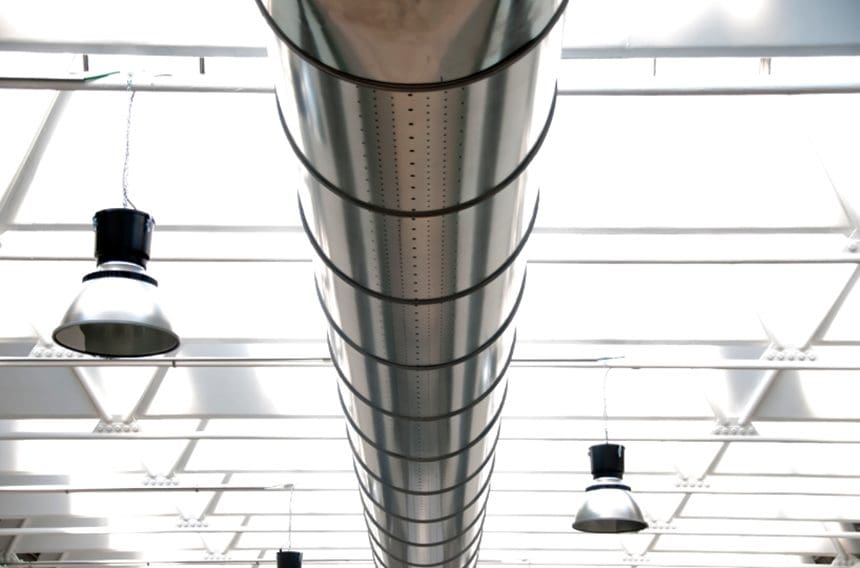
Pros of Forced Air Units
Forced air heating has many advantages. Here are some:
● Energy costs
Forced air heating systems are cost effective. These units typically use natural gas as a fuel source, which is affordable and readily available. Additionally, forced air furnace systems have undergone improvements that make them much more energy efficient than systems of the past.
● Heating time
If you’re looking for a quick way to heat your home on the coldest of days, look no further than forced heating systems. Not only does air heat faster than water, but the system forces that air into your room to move and heat the room faster.
● Easy to install
Forced air heating systems can be added to existing ductwork, reducing installation costs. On the other hand, radiant heating units require a comprehensive reform of the home, which can be quite expensive.
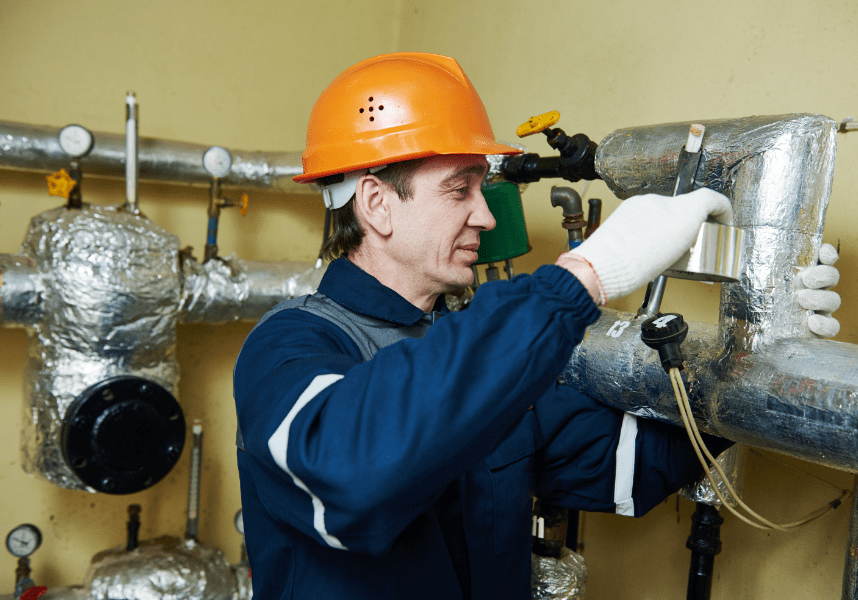
● Trustworthy
Forced air heating systems are durable and can last a long time, especially if the machine uses furnaces. Parts for this system are also easy to find and replace; therefore, they are not very pricey.
● High indoor air quality
One of the main benefits of forced air heating is that it can help improve indoor air quality. Air filters remove all contaminants from the air, making it cleaner and healthier. Also, having a forced air furnace gives you the flexibility to add an air purifier or humidifier, instead of having them as separate smaller systems for each room.
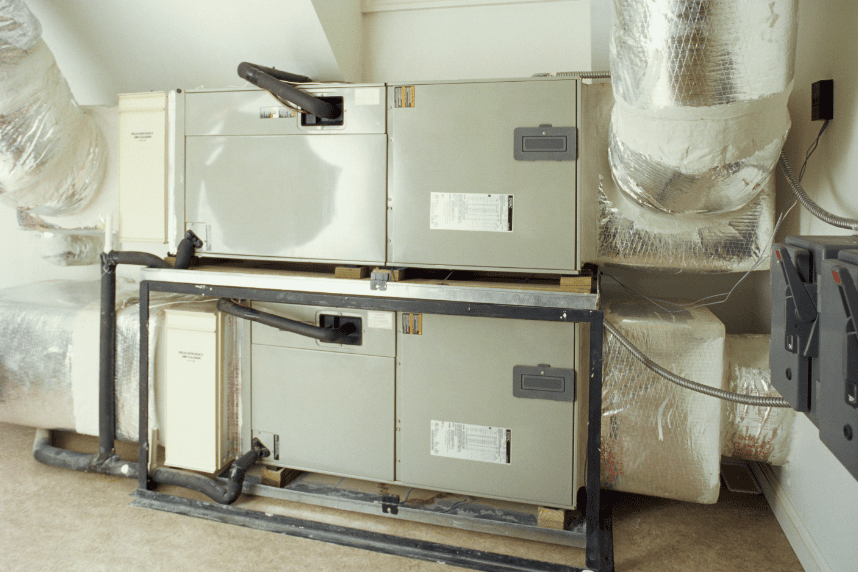
● Smart device compatibility
The smart AC controllers and smart thermostats of a forced air heating system can save you big on energy costs. Forced air heating is compatible with air conditioners. You can have one thermostat for your entire home or several to create HVAC zones around your home.
Cons of forced air heating
Forced heating units also have drawbacks. Here are some of them:
● Noisy
Forced air cooling systems are notorious for being noisy. Although this problem is not as serious as it used to be, it still exists and is one of the main drawbacks of forced air heating.
● Health problems
Dust and mold can build up in air ducts over time. As the system pushes air through the ductwork, these contaminants can spread throughout your home. Mold also poses serious health problems.
● Reduced efficiency
As air passes through long ductwork, it can cool or escape through gaps or cracks in the ductwork, causing a loss of energy. Leaky ducts can also allow contaminants to enter your home or cause duct sweating that can damage your home’s insulation.
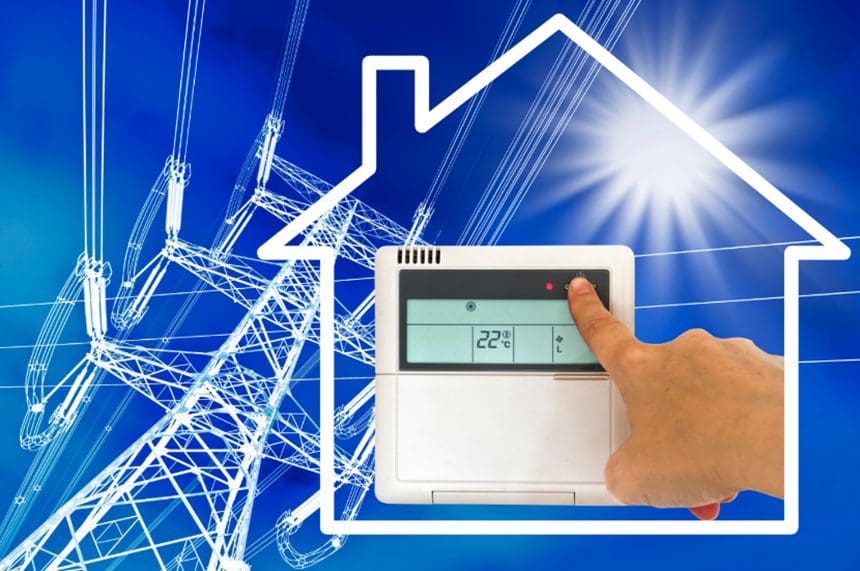
● Centralized control
Most forced air heating systems have a central HVAC unit that controls the temperature throughout the house. Since the entire house is controlled by a single thermostat, there is no room for custom climate zones and money is wasted heating unoccupied rooms. One possible solution is to use HVAC dampers to close off areas that do not need heating.
● Expensive installation
Although forced air heating is not very expensive, installing new ductwork can make it costly. Since duct installation is not an easy DIY project, you’ll need to hire a professional, and the costs can add up quickly.
● Extensive Interview
Since most forced-air heating units use ductwork to bring air to the farthest part of your home, you can expect much more expensive maintenance. For example, ducts need to be cleaned every three to five years, air filters need to be replaced more frequently, every two to three months, and other mechanical parts of your forced air heating system may require regular maintenance.
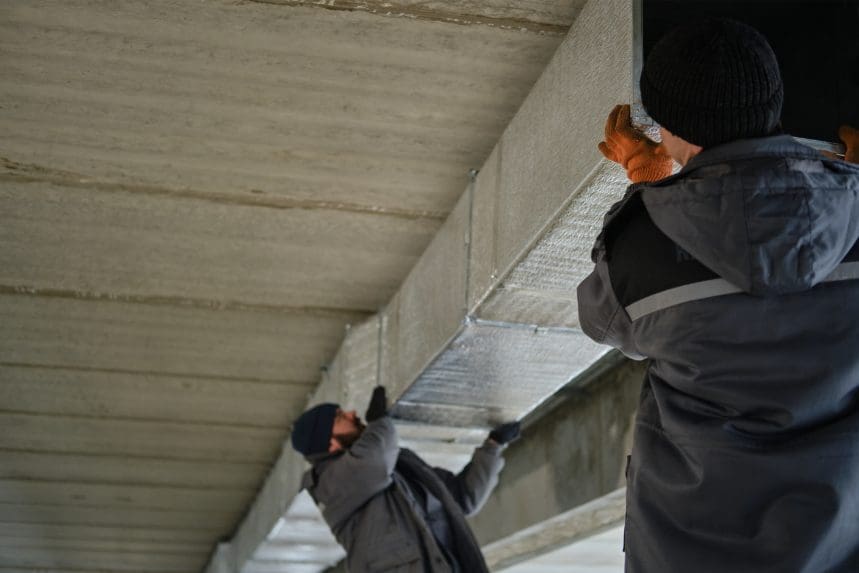
Is forced air heating the right solution for you?
Forced air heating has many advantages, such as easy installation into existing ductwork, low operating costs, fast heat-up time, and better interior quality.
However, like all other heating systems, forced air heating also has some disadvantages, such as low efficiency due to air leaks or long ducts, noise, and high installation costs if you don’t have ducts.
So the answer to whether or not you choose an electric forced air heater depends on your ductwork and overall budget.


